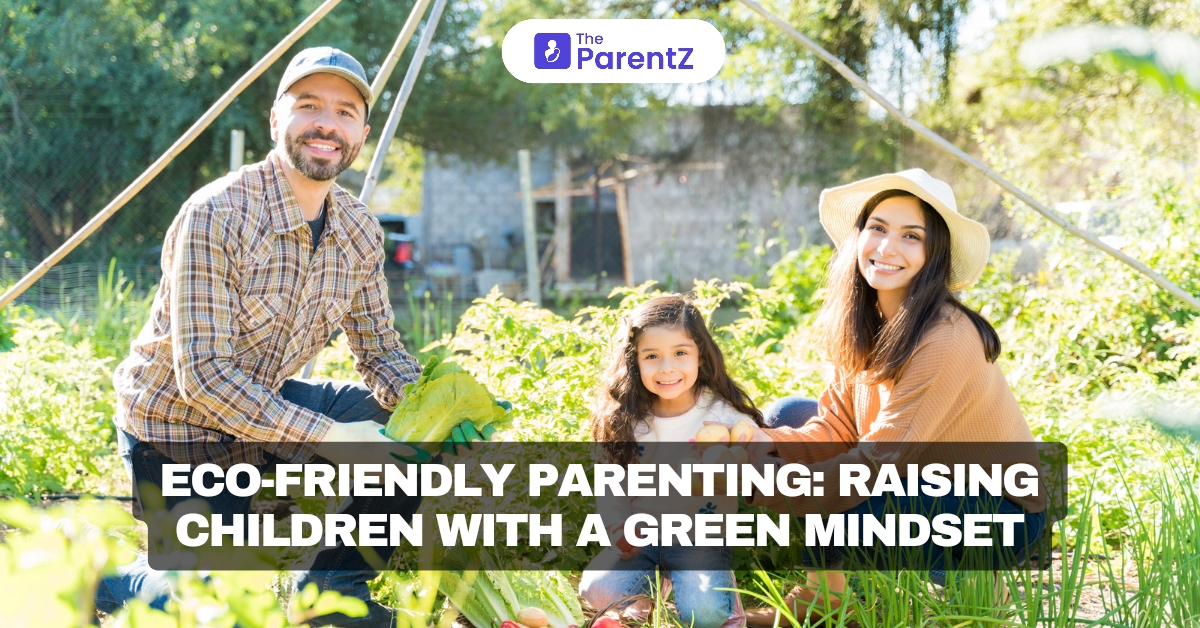As environmental concerns become increasingly urgent, more parents are embracing eco-friendly practices in their households. Eco-friendly parenting involves raising children with an awareness of environmental issues and instilling habits that contribute to sustainability. From reducing waste to choosing eco-friendly products, parents are finding ways to minimize their family’s environmental impact while teaching their children the importance of caring for the planet.Building Community
Why Eco-Friendly Parenting Matters
Environmental Impact
Eco-friendly parenting plays a crucial role in reducing the environmental footprint of your household. Every decision, from using cloth diapers to reducing plastic use, helps conserve natural resources and minimizes pollution. By adopting sustainable practices, parents not only protect the planet for their children but also set a powerful example for future generations to continue prioritizing the environment.
Educational Value
Raising children with an eco-friendly mindset teaches them the importance of sustainability early on. It encourages them to be conscious consumers and environmentally responsible individuals. This education goes beyond the home, influencing how they interact with the world, shaping values like empathy, respect for nature, and a deep understanding of how human actions affect the planet.
Health Benefits
Eco-friendly parenting often involves reducing exposure to harmful chemicals and pollutants by choosing organic or non-toxic products. Using sustainable and eco-conscious materials also promotes healthier indoor air quality, which can reduce allergies and asthma in children. Plant-based diets, commonly associated with eco-friendly lifestyles, provide nutritional benefits and lower the risk of certain health conditions, promoting overall well-being for both parents and kids.
Building Community
Practicing eco-friendly parenting connects families with like-minded individuals who share similar values. By joining local green initiatives or attending environmental workshops, parents can build a sense of community, where they can exchange ideas, resources, and support. This network fosters a collective effort towards sustainability, strengthening social bonds around shared goals.
Practical Tips for Eco-Friendly Parenting
Reduce, Reuse, Recycle
This principle is foundational in eco-friendly parenting. Parents can reduce waste by avoiding single-use products, reuse items like toys and clothes, and recycle where possible. Teaching children these habits ensures they understand the value of conservation. Passing down clothes, toys, and even household items promotes a culture of minimalism and waste reduction.
Choose Sustainable Products
Opt for eco-friendly products, like bamboo toothbrushes, biodegradable diapers, and organic cotton clothing. By supporting companies that prioritize sustainability, parents help promote ethical business practices and reduce the demand for environmentally damaging goods. Sustainable products tend to last longer, making them not only better for the planet but also more cost-effective in the long run.
Adopt a Plant-Based Diet
A plant-based diet has a lower carbon footprint compared to meat-heavy diets. Including more plant-based meals in your family's diet contributes to reduced greenhouse gas emissions, less water usage, and lower rates of deforestation. For parents, this could mean preparing more vegetarian or vegan meals, which are also rich in nutrients and beneficial for children's health.
Conserve Energy and Water
Parents can model responsible resource use by conserving energy and water in everyday activities. Simple actions like turning off lights when not in use, switching to energy-efficient appliances, or taking shorter showers can significantly reduce household consumption. This not only helps the planet but also teaches children to value and protect vital resources.
Spend Time in Nature
Spending more time outdoors fosters a deeper appreciation for the environment in children. Activities like hiking, gardening, or exploring local parks help kids connect with nature, increasing their awareness of the importance of protecting natural habitats. It also encourages physical activity, benefiting their mental and emotional health while reinforcing eco-friendly values.
Educate and Advocate
Parents play a vital role in educating their children about environmental issues. By discussing topics like climate change, pollution, and conservation, parents equip their kids with knowledge that empowers them to advocate for a better future. Additionally, families can engage in advocacy by participating in environmental campaigns, signing petitions, or attending community events focused on sustainability.
Challenges and Solutions
Cost of Eco-Friendly Products
Eco-friendly products can often be more expensive than their conventional counterparts, which can be a barrier for some families. To overcome this, parents can look for second-hand options, buy in bulk, or focus on high-impact changes that fit their budget. Over time, eco-friendly choices can result in savings due to the longevity and reusability of many sustainable products.
Balancing Convenience with Sustainability
Eco-friendly parenting requires more effort and planning, such as using reusable products that need to be cleaned or opting for homemade, sustainable meals. To balance convenience with sustainability, parents can start small by integrating one eco-friendly practice at a time. For example, starting with reusable grocery bags and gradually shifting to more sustainable choices can help parents avoid feeling overwhelmed.
Overcoming Resistance
Some family members or peers might resist the changes involved in eco-friendly parenting, finding it inconvenient or unnecessary. To address this, parents can focus on the benefits—such as cost savings, improved health, and a better future for children—while gradually introducing changes. Leading by example and demonstrating the positive impact of eco-friendly habits can help overcome resistance.
Conclusion
Eco-friendly parenting is about making conscious choices that benefit both your family and the planet. By reducing waste, choosing sustainable products, and teaching your children about environmental responsibility, you’re laying the foundation for a greener future. While challenges exist, the long-term benefits of raising children with a green mindset far outweigh the inconveniences. As more families embrace eco-friendly practices, we can collectively contribute to a healthier, more sustainable world








Be the first one to comment on this story.